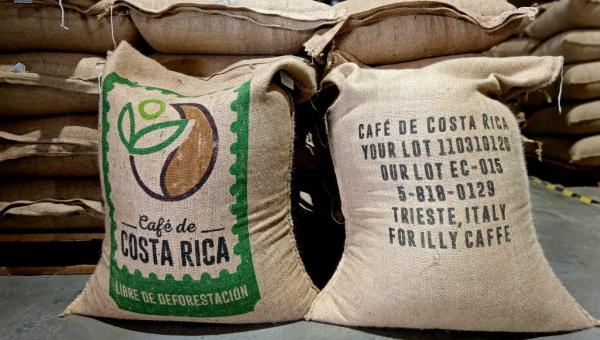Indonesia: Sustainable Palm Oil
Indonesia is the world’s largest producer of palm oil —a staple agricultural commodity found in about half of all packaged products sold in supermarkets. The country produces more than 30 million tons of palm oil per year, generating 4.5% of its GDP and giving employment to 3 million people. With steady double-digit growth rates, the sector has become vital to the country’s economy. However, unsustainable palm oil production is also contributing to rapid tropical forest destruction and climate change.
The challenge now is maximising the development and economic benefits of this pivotal national commodity sector, all the while minimising its adverse social and environmental effects.
There are three key factors to achieve sector sustainability and ensure a promising future for Indonesian palm oil:
- Boosting farmers’ competitiveness by exposing them to good agricultural practices.
- Address gaps in policies.
- Applying innovative approaches to financing.
- Building effective collaboration between government, civil society, and private sector.
Since 2012, the Green Commodities Programme (GCP) and the Good Growth Partnership have been working with the national government to set-up the Indonesia Sustainable Palm Oil Platform (Bahasa Indonesian acronym: FoKSBI), a neutral space for all stakeholders to come together and address key challenges in the development of sustainable palm oil in Indonesia.
Officially established in 2014, FoKSBI has enabled the launch of the National Action Plan in 2016, highlighting several key components for sector sustainability.
- Better coordination of smallholders through mapping exercise, training, and technical and financial assistance.
- More effective sector governance, including improved law enforcement, faster resolution of land conflicts, and tighter oversight of licensing.
- Improved environmental management and monitoring through biodiversity conservation, reduction of greenhouse gases, more productive use of land already under cultivation, etc.
- And promotion of the Indonesian Standard for Palm Oil (ISPO).
Being the country’s first-ever government-led sustainable palm oil platform, FoKSBI is enabling diverse stakeholders —including smallholders, traders, buyers, government and civil society— to discuss sensitive issues surrounding palm oil production in a way that is non-adversarial. Through its productive dialogue, based on GCP’s Multi-Stakeholder Collaboration for Systemic Change, FoKSBI enables its members to develop a shared vision and, correspondingly, commit to action.
With the robust National Action Plan for Sustainable Palm Oil signed by President Joko Widodo in November 2019, the Indonesian government is now working to tailor the national strategy to cater to 6 distinct production regions across the country. Due to the uniqueness of challenges posed by these regions, the Indonesian sector has developed 3 Provincial Platforms in Riau, North Sumatra, and West Kalimantan, and 3 District Platforms in Sintang, South Tapanuli and Pelalawan.
With time, it is expected that each of these platforms will devise its own Regional Action Plan, deriving the components from the National Action Plan. Soon enough, the key national agricultural sector will be able to flaunt it sustainable future and serve as a benchmark to other oil palm producer nations worldwide.
Learn more about the work of the Green Commodities Programme in Indonesia in the At-A-Glance Country Guide.

 Locations
Locations





